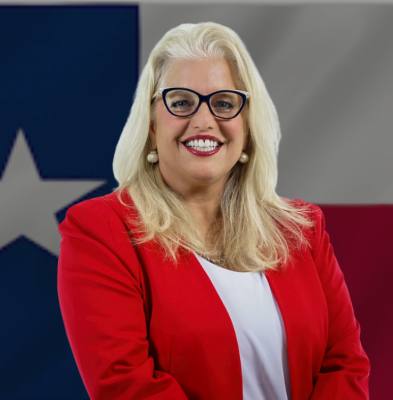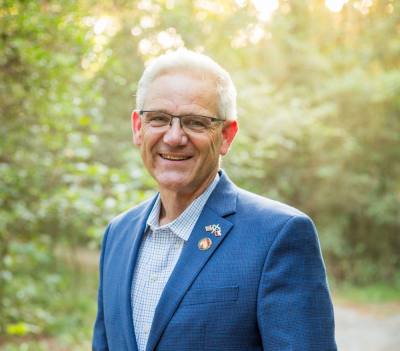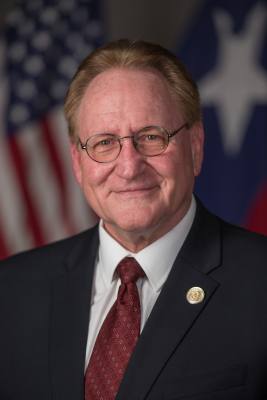Three Republican candidates are running for the Montgomery County judge position in the upcoming March primaries.
The winners for each party in the March primaries will be on the ballot in the November general election. Candidate responses may have been edited for length and clarity. Candidates are included below in the order names appear on the Montgomery County ballot.
* indicates the incumbent candidate
Candidates
Sara Countryman
Occupation: IT sales executive
Relevant experience: Current mayor of the city of Montgomery and experience building strategic relationships to facilitate IT sales
Campaign phone: 346-298-3664
Campaign website: www.countryman4countyjudge.com
Mark Keough*
Occupation: County judge in Montgomery County and senior pastor at The Woodlands Bible Church
Relevant experience: Over 27 years in private business, four years in the Texas Legislature as state representative and three years as county judge of Montgomery County.
Campaign phone: 832-729-3314
Campaign website: www.keough4texas.com/
Billy Graff
Occupation: President of IConnect outreach Inc.
Relevant experience: Budget management; team builder/coach; Montgomery County Republican Party committee chair; liaison with federal, state and county officials
Campaign phone: 409-626-0294
Campaign website: www.billy4texas.com
QUESTIONS
What qualifies you to run for the position?
Countryman: As a two-term mayor of the city of Montgomery, I have presided over City Council, represented the city for city business, provided oversight to the various city departments and participated in four budget cycles. My first year in office, we reduced the city tax rate by $0.01, restructured the city’s debt service, and in 2021, City Council passed the city’s first-ever homestead exemption. I am ready to go to work on Day 1.
Keough: I am the only candidate with a proven conservative record and experience as county judge. I have cut taxes in the last three budget cycles; removed tolls from Hwy. 242; successfully navigated the county through multiple disasters, including the pandemic, Hurricane Imelda and Winter Storm Uri; and delivered on my promise to cut my pay by 12% and am the only county employee who has not received a raise or a cost-of-living increase.
Graff: In both my business experiences and pastoral experiences, I have held positions of leadership that required administering meetings and enforcing Robert's Rules of Order. I have had fiduciary responsibility for hundred of projects and millions of dollars. I oversee budgets, manpower analytics, procurement as well as project planning and development. My work with local, state, federal and philanthropic grants gives me a strong working knowledge of best practices for financial accountability.
What would your top priorities be if elected?
Countryman: The county needs the infrastructure to sustain the development here. We need to provide the resources to the commissioners to improve mobility and reduce flooding. The county also needs accountability and transparency by coordinating all county departments, so they act as a cohesive unit to provide services to the taxpayer. We need to open our books and documents to the public, answer questions and justify our choices.
Keough: 1. Utilize the recently approved countywide mobility plan to develop a list of infrastructure projects that need immediate attention due to our unprecedented growth. 2. Continue to keep our property taxes at or below the no new revenue rate. 3. Continue to steer the county away from obstacles brought up during this pandemic. 4. Keep the county open and free.
Graff: Implement zero-based budgeting; minimize expenditures outside the budget; identify and reduce unnecessary spending and debt; ... [have an] active ethics commission and standardized pay scales; ... eliminate favoritism at all levels; ... [hold a] countywide mobility study with annual updates; strategic planning for future growth [and] infrastructure design
What do you see as the biggest transportation and mobility needs in Montgomery County, and how should the county fund them?
Countryman: Montgomery County has a lot of new subdivisions being built on FM roads maintained by the state. These subdivisions will change local traffic patterns and create the need for county road maintenance where it wasn’t previously needed. I will work to fund county operational expenses from the budget and reduce expenses so the commissioners can devote 100% of road and bridge funds to county roads and drainage.
Keough: Because of a 30% population growth from 2010 to the present, the need for infrastructure to accommodate that growth is imminent. I would leverage working relationships with [the Texas Department of Transportation] to increase focus on our highway and FM network so that our county dollars go toward larger thoroughfares. All projects of course would be looked at in a way that leverages other dollars first with county dollars as a last resort.
Graff: Higher lane counts and alternative routing in areas of high-density travel along with possible stripping changes where feasible. New roads are needed with better planning from inception. Countywide traffic light synchronization. Develop multiple safe alternative and efficient transportation options. Funding is the primary challenge; work with [the Houston-Galveston Area Council], federal and state grants, private/public partnerships and private investment are all possible ways to be successful without over-taxing the citizens.
How can the county better encourage residential and commercial development?
Countryman: By addressing mobility and flooding at the plat stage of development, the county and developers can work together to create a positive impact for the county, the developer and the residents. The county should ensure the new development whether residential or commercial has enough lanes and intersection signals to handle the traffic patterns around the new development. This could require changes to the plat, negotiations with TxDOT when state roads are involved, or right-of-way donations.
Keough: 1. By being pro-business oriented, as you cannot have a healthy community without a healthy economy. 2. Updating our subdivision standards would better position the county the new growth that is coming. However, Texas being a conservative private property state allows property owners to do what they want on their property. As such, counties in Texas cannot stop a residential or commercial development if they abide by all local fire code and development standards.
Graff: At this time very little encouragement is required. Our growth rate has been and continues to produce high-volume residential and commercial development opportunities in all precincts of the county. I would like to see a more robust approach to assisting and encouraging the growth of small businesses. Small business is the true economic engine of our local economy, and I would like to see it grow and prosper.
What do you believe the county judge's role should be in preventing the spread of COVID-19?
Countryman: I believe the county judge’s role on the Public Health Board in Montgomery County provides insight and information that should be communicated to the general public. People need to know the facts so they can make decisions as to how to best protect themselves and their families. Then, the county judge should work through federal, state, local and private partners to ensure testing supplies, vaccines, PPE and treatments are available to every Montgomery County resident that needs it.
Keough: No local, state or federal government has been able to stop the spread of COVID-19 despite all the harsh measures and mandates. Thus, my job has been to ensure we have the tools necessary so our hospitals can stay open. When they were full, we added nurses. When lifesaving treatments were available, we opened an infusion center and fight daily to keep it open due to supply issues at the federal level.
Graff: They should be on the frontline of communication to the citizens, providing up-to-date medical information, suggestions and encouraging all to take the appropriate actions as they do with any other emergency. Provide as many resources as is available. Unconstitutional shutdowns, mandates and work stoppages was a mistake on March 27, 2020. The unemployment rate for Montgomery County rose to 12.6% from 4.9% because of it, according to the U.S. Bureau of Labor Statistics.








